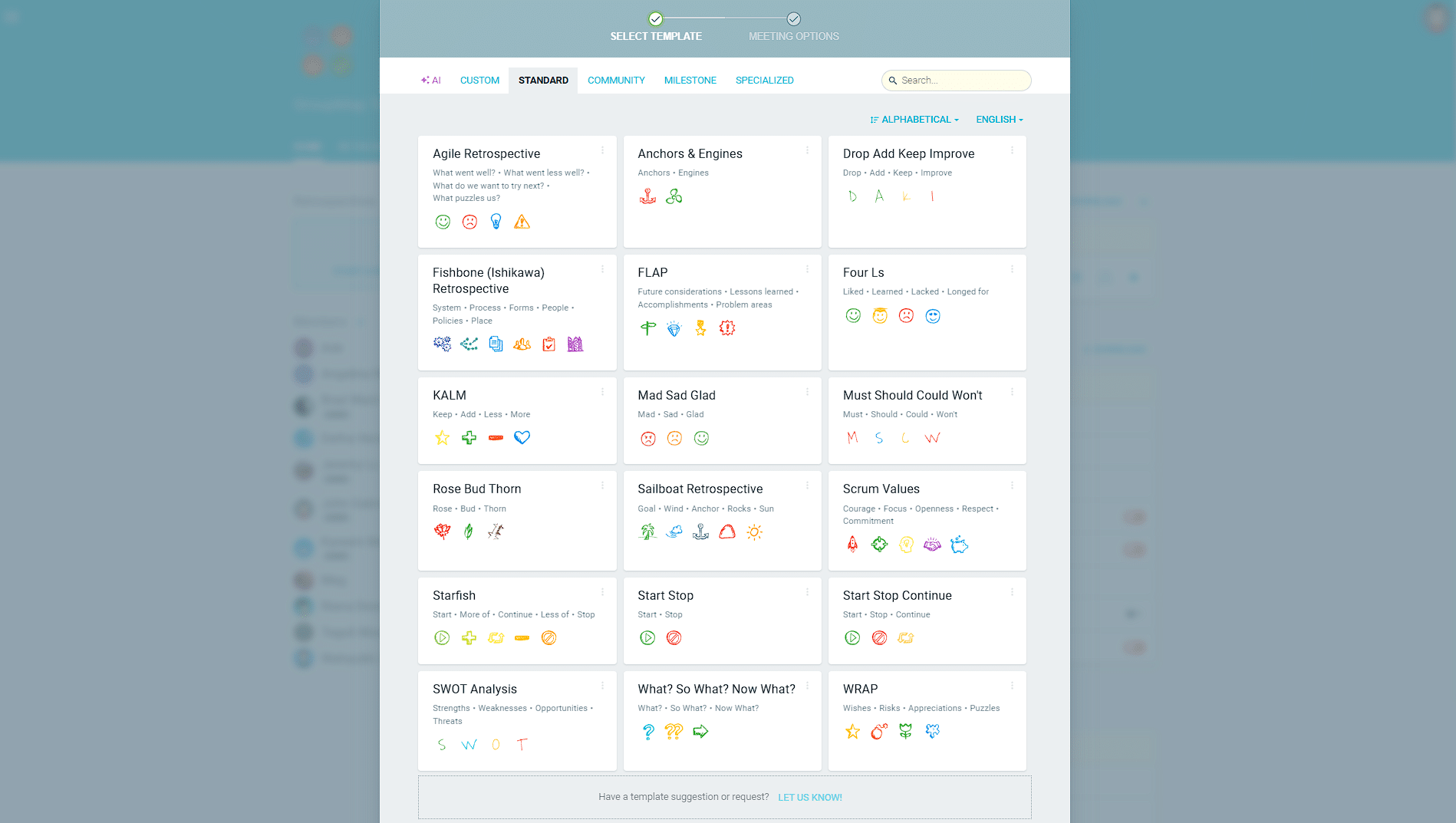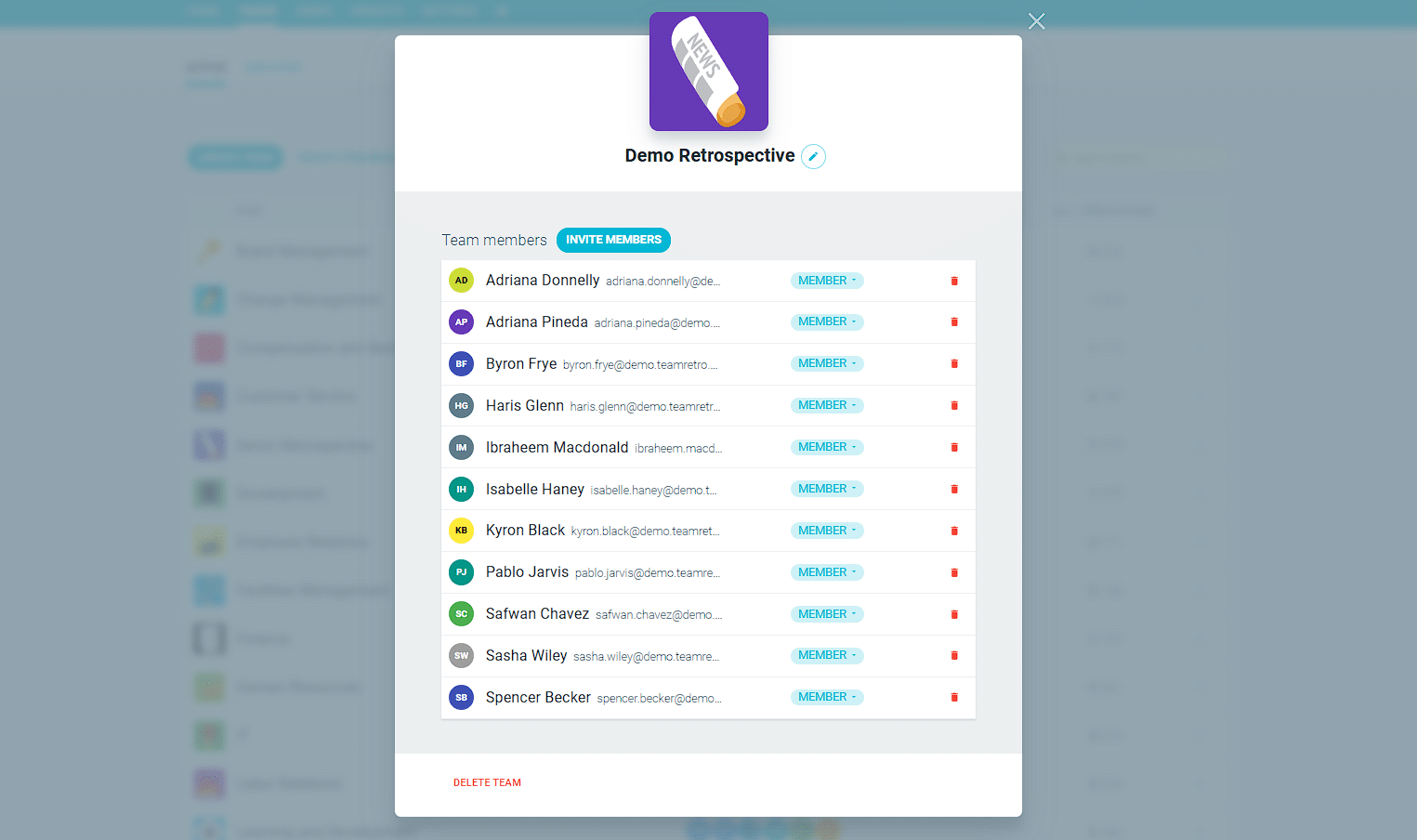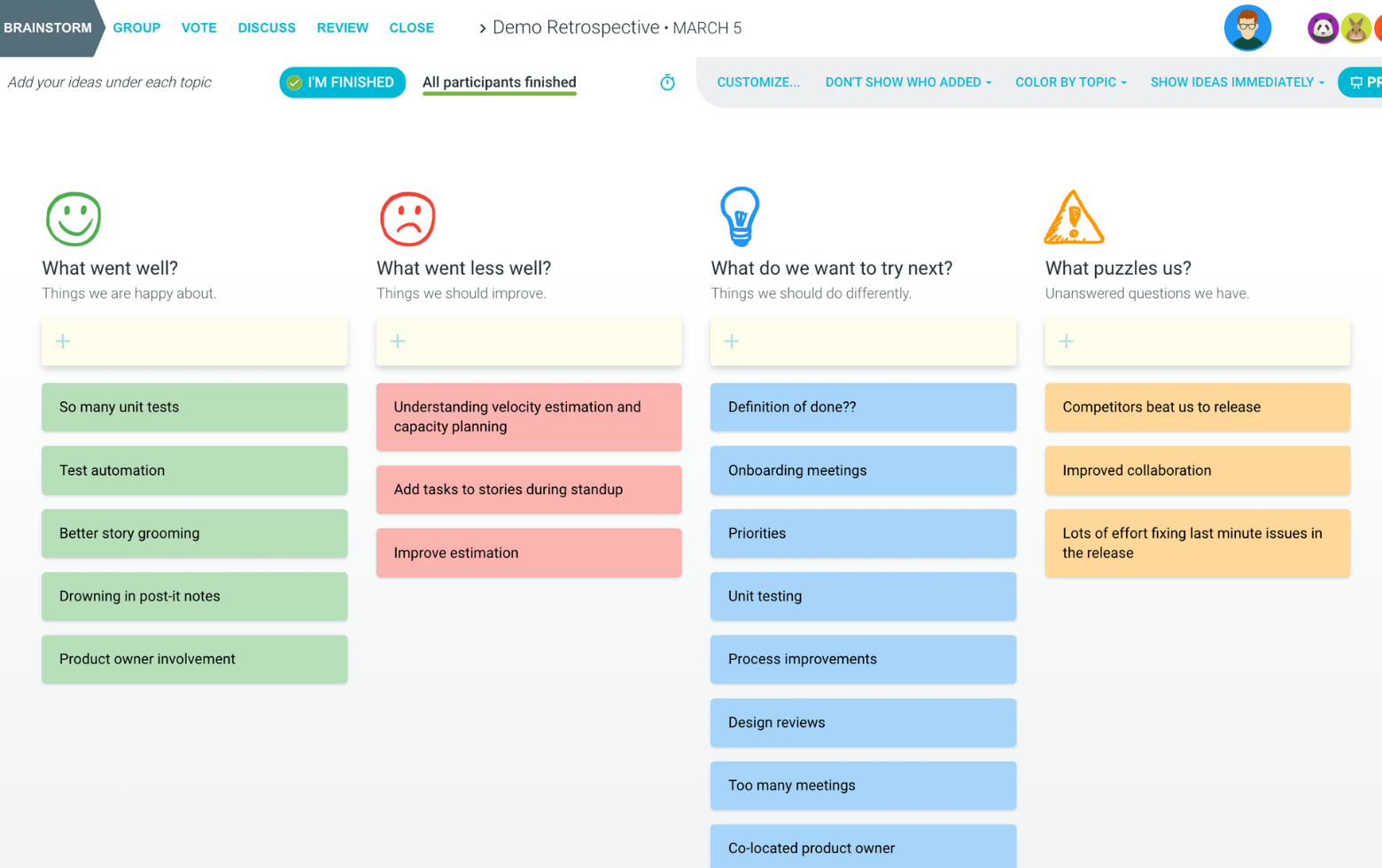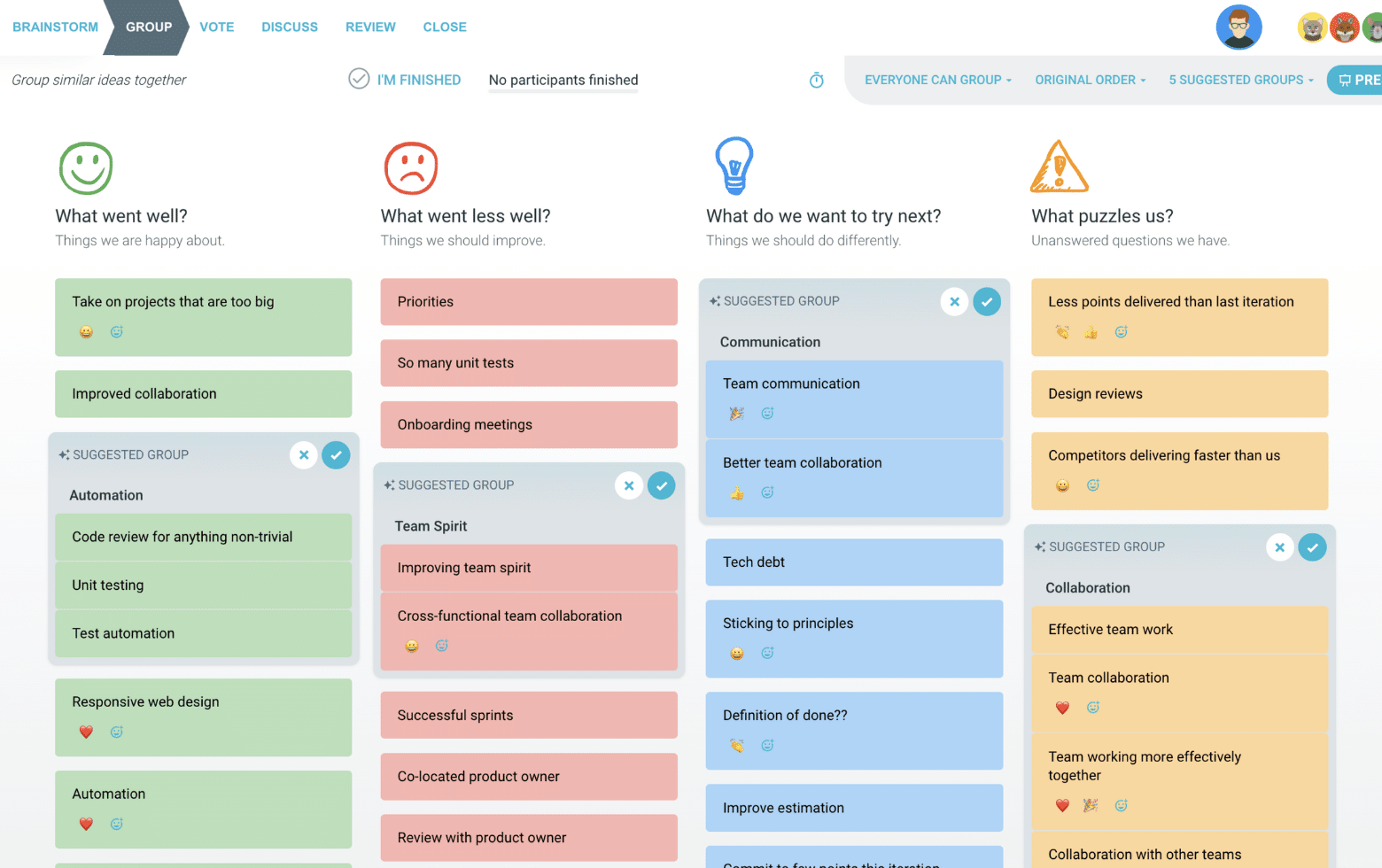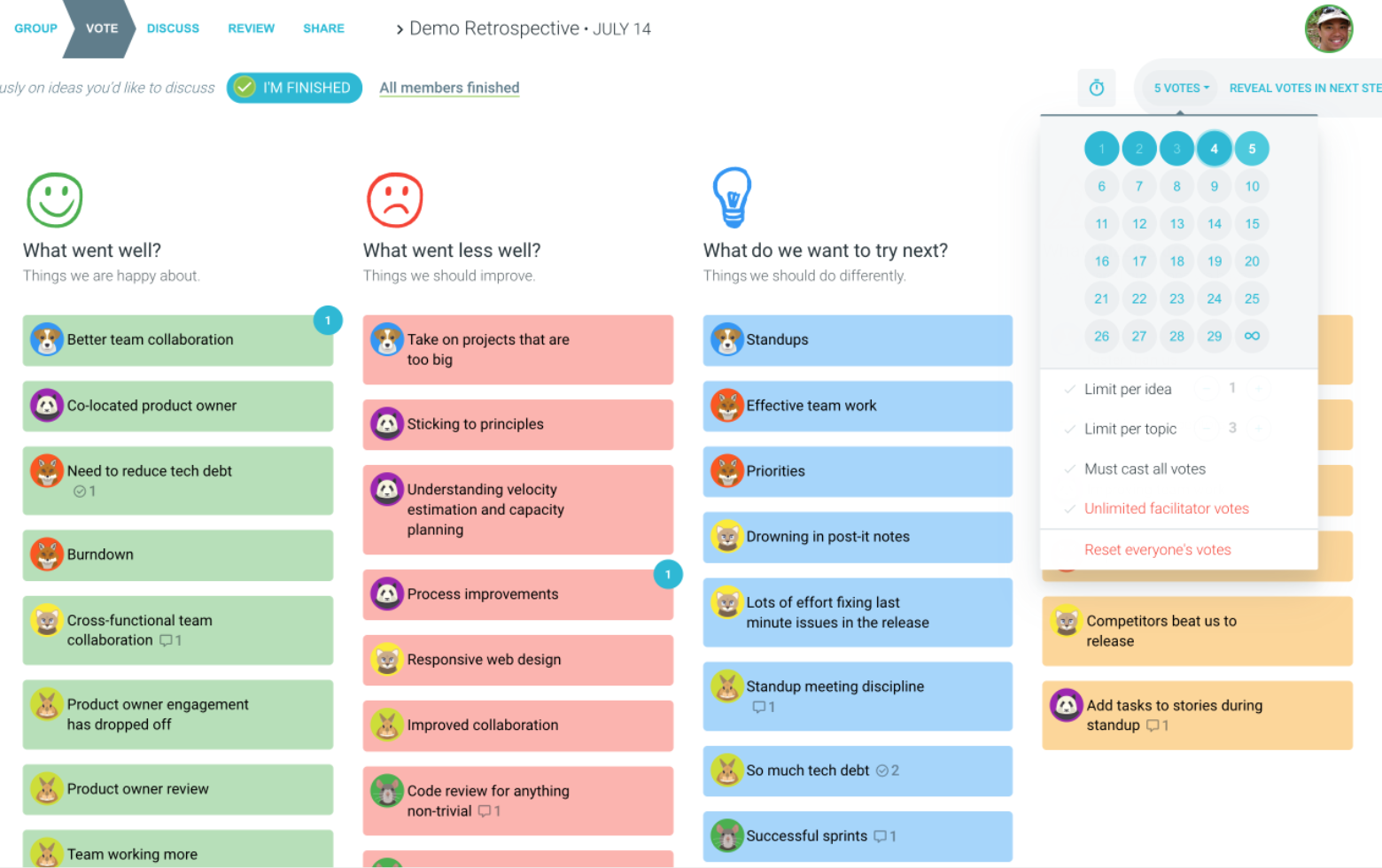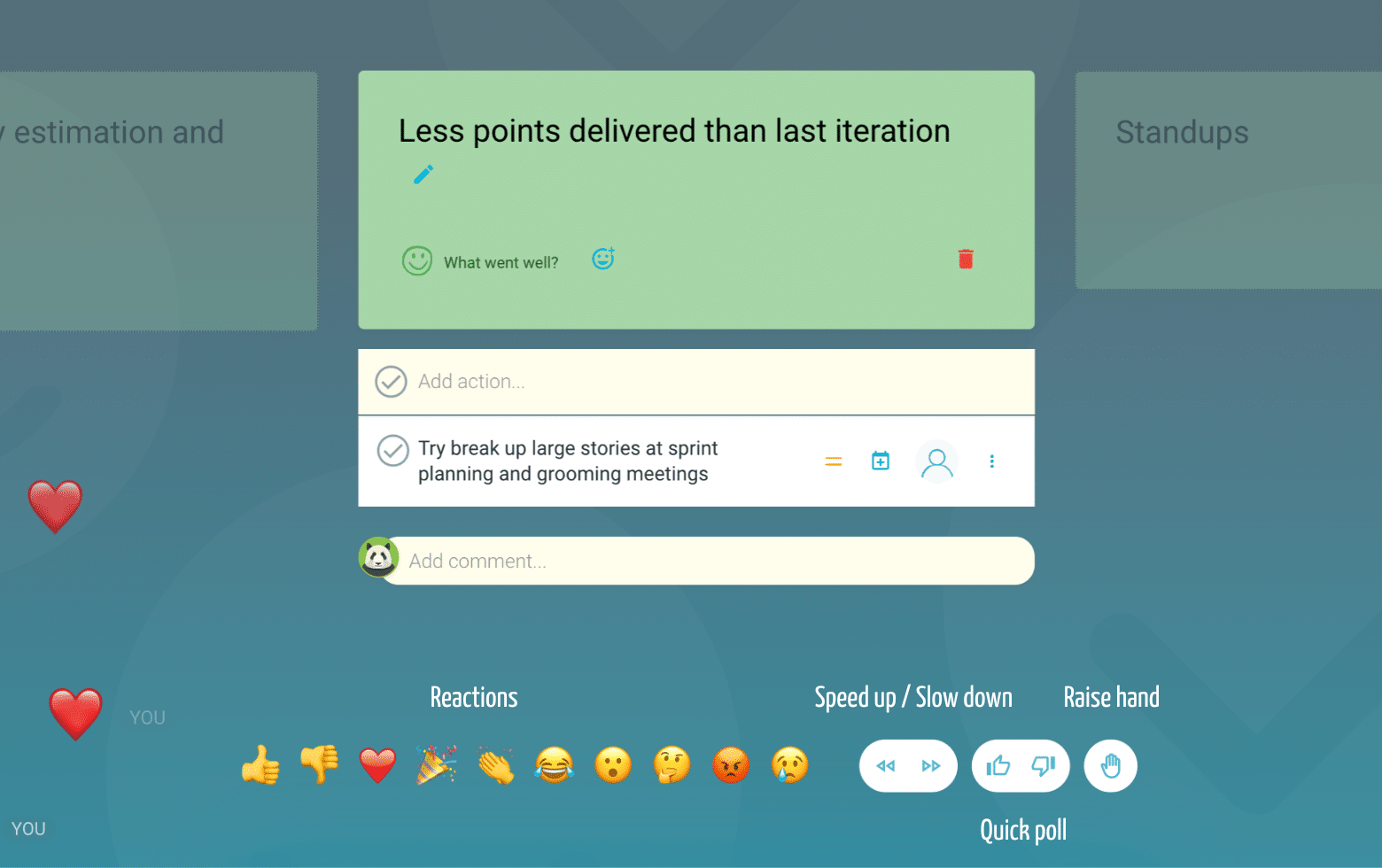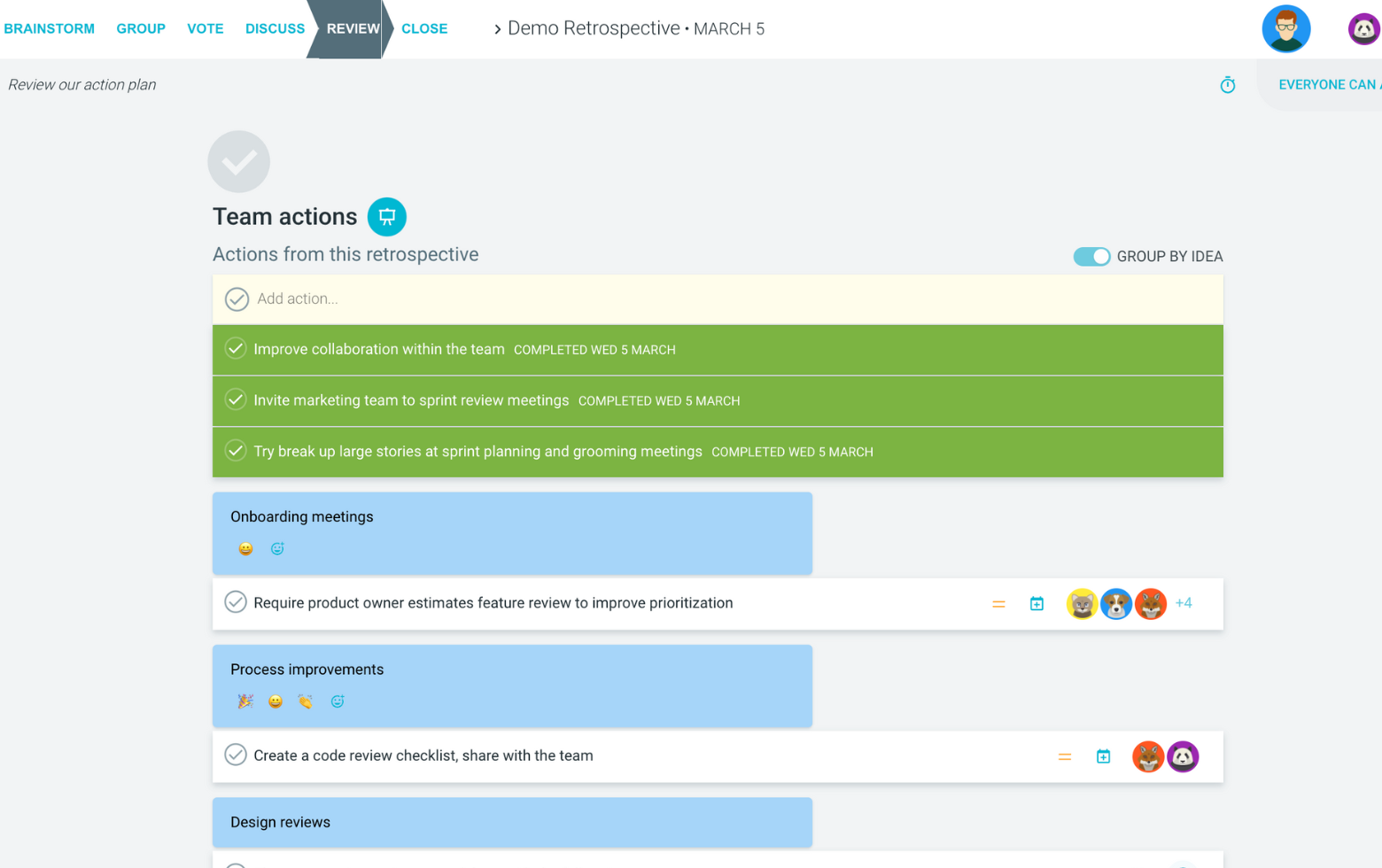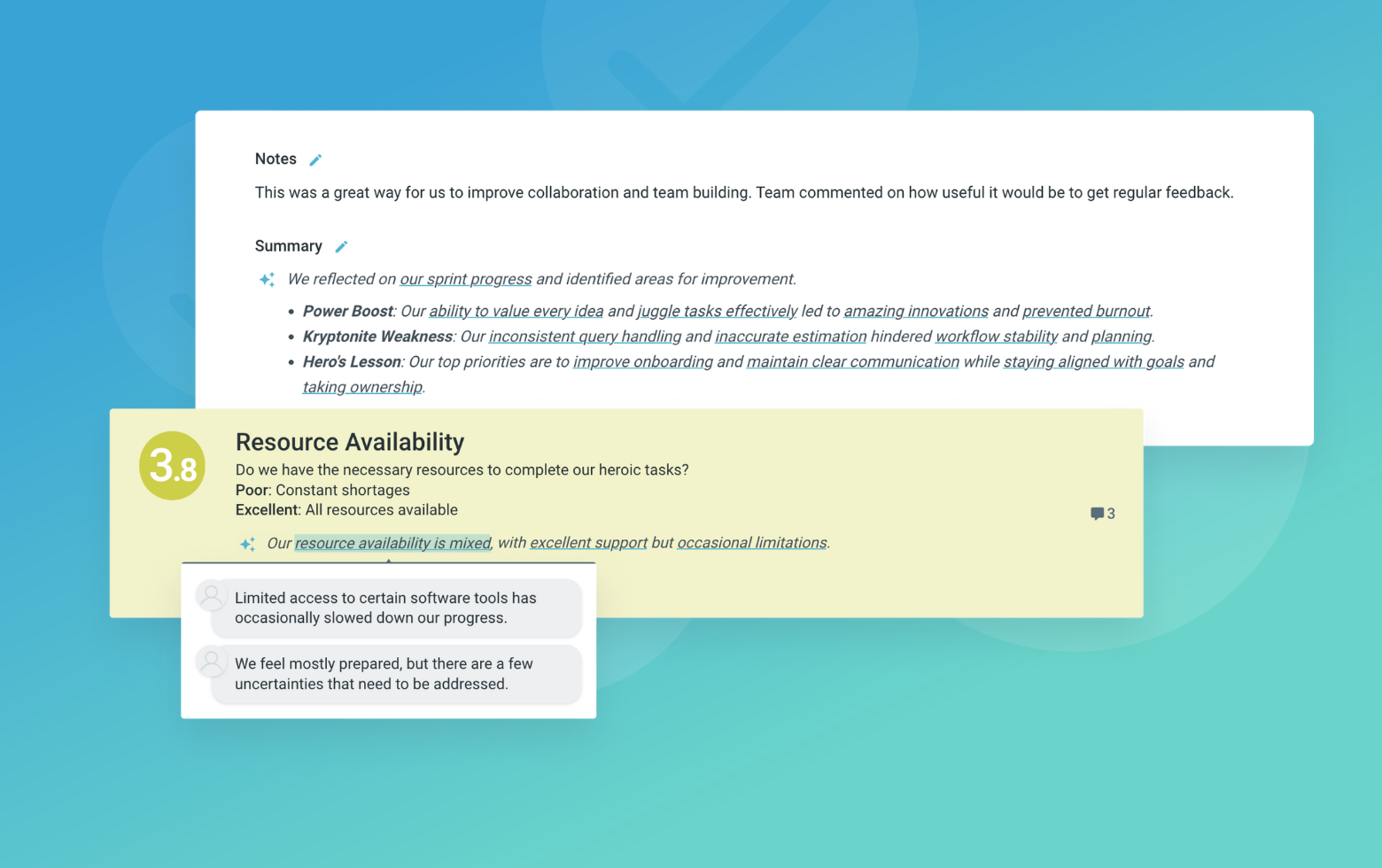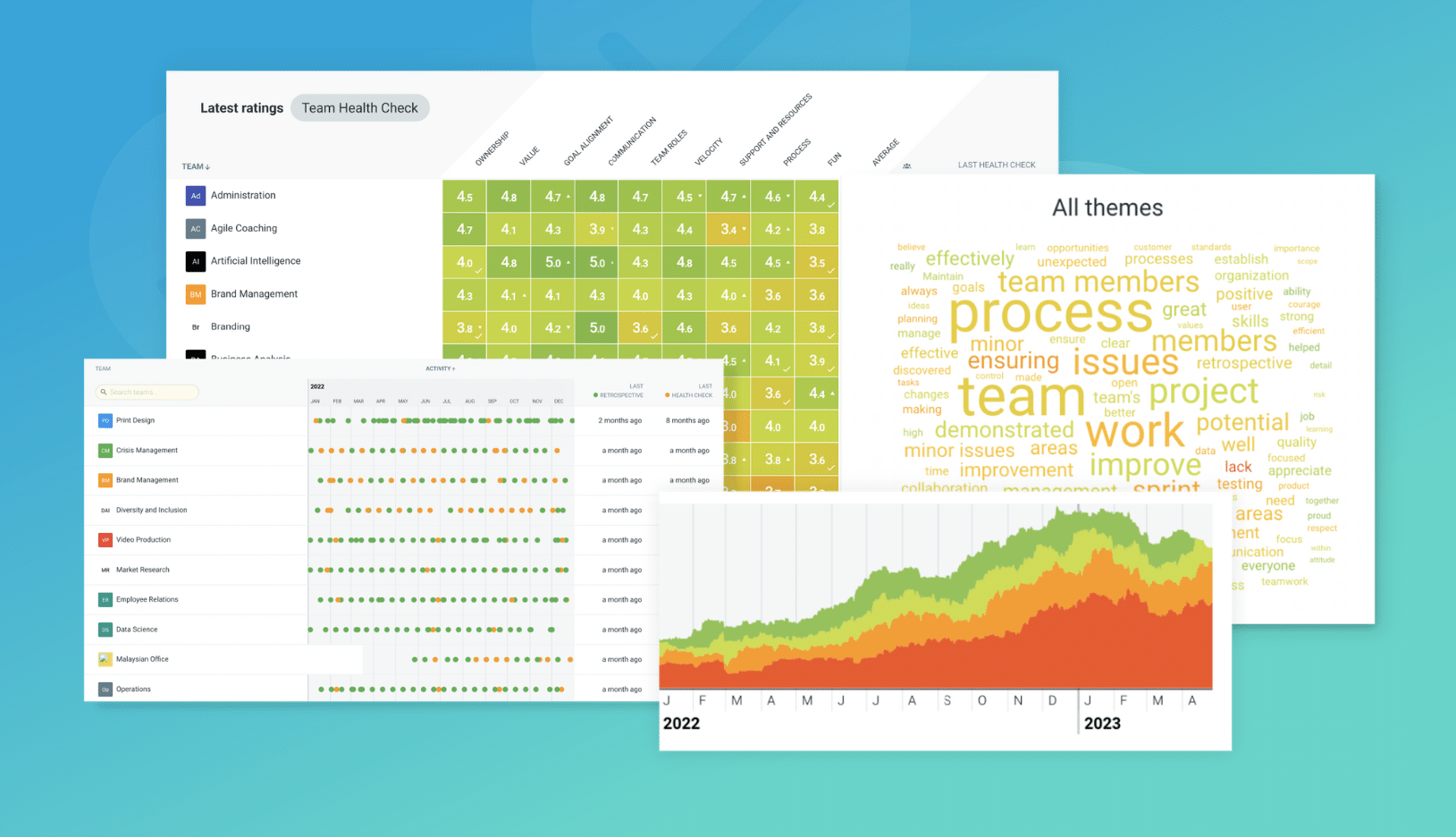The Seasons of the Year retrospective uses nature's cycles as a powerful metaphor for team development and organizational change. This innovative approach helps teams explore their experiences through the lens of seasonal transitions, making abstract concepts more tangible and relatable.
By mapping team experiences to spring (growth), summer (peak performance), autumn (transformation), and winter (reflection), teams can identify patterns in their work cycles and understand how different phases affect their productivity and collaboration. This natural framework encourages honest dialogue about team dynamics while maintaining a positive, forward-looking perspective.
Originally adapted from nature-based reflection techniques, this retrospective format helps teams acknowledge that change is natural and cyclical, leading to more constructive discussions about challenges and opportunities for growth.
What is The Seasons of the Year Retrospective
Spring
Growing or blossoming
Spring represents new beginnings and growth. Encourage participants to share emerging ideas, recent learnings, and budding opportunities. Focus on potential and fresh starts, asking about new skills developed or relationships formed.
Summer
Sizzling or shining
Summer represents peak performance and achievement. Guide the team to celebrate successes, highlight what's working well, and identify areas where they're operating at their best.
Autumn
Evolving or changing
Autumn represents transformation and preparation. Focus on how the team is adapting to change, what they're learning from experience, and how they're preparing for future challenges.
Winter
Slowing or chilling
Winter represents reflection and planning. Help the team identify areas that need rest or renewal, discuss challenges that are freezing progress, and consider what needs to be preserved or protected.
Suggested icebreaker questions
- If your current work mood was a season, which would it be and why?
- What's your favorite season at work, and what makes it special?
Ideas and tips for your retrospective meeting
- Encourage participants to think metaphorically about how their experiences align with seasonal characteristics
- Remind the team that all seasons are necessary and valuable - winter isn't inherently negative
- Use seasonal transitions to discuss how the team can prepare for and adapt to change
- Consider running this retrospective quarterly to track how team dynamics evolve over time
- Create a safe space for discussing 'winter' topics by emphasizing their role in renewal and growth
.
How to run effective meetings with TeamRetro
Start Your Session in a Click
Log into TeamRetro and choose your template. Customise questions and the workflow to create your perfect retro for your team.
Create Your Team Easily – No Separate Accounts Needed
Brainstorm Individually – Free From Bias
Smart Grouping for Faster Insights
Fair, Flexible, and Fast Voting
Engage, React, and Capture Key Insights
Walk your team through ideas one by one with Presentation Mode. Stay in sync, spark real-time discussions, and capture feedback with comments, live reactions, and polls—all in one place.
Turn Ideas Into Action
Propose next steps with team buy-in, get AI-powered action suggestions, and keep everything in one place. Committed actions sync to your personal dashboard and integrate with your workflow tools—keeping you on track.
Save, Share, and Stay on Track
Get quick AI-powered summaries, add facilitator notes, and store retrospectives in your library for easy access. Schedule your next session and track published actions to keep your team accountable at the next retro.
Turn Team Data into Actionable Insights
Uncover trends, common themes, and key engagement metrics at a glance. Track sentiment shifts, analyze conversations, and monitor completed actions to drive continuous improvement.
